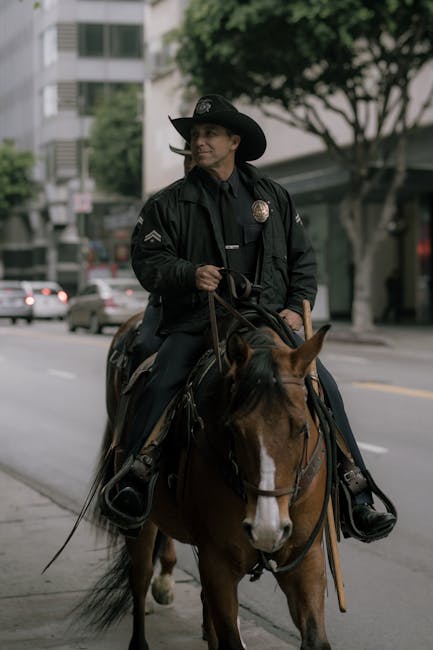Arizona is home to breathtaking landscapes, fascinating wildlife, and…some downright bizarre laws! Amidst its natural elegance, the desert state also holds a treasure trove of quirky legal tidbits. These oddities may make you scratch your head and wonder how they ever made it into the law books. Let’s embark on a journey through the unusual legal landscape of Arizona with these ten peculiar statutes.
#1: Cacti Protection—Prison Time for Picking
Cacti are as iconic to Arizona as the Grand Canyon itself. The state takes enormous pride in its desert flora, particularly the majestic Saguaro cactus. In fact, Arizona’s dedication to cacti preservation is so strong that destroying one can land you up to 25 years in prison. The law is part of an effort to safeguard these state treasures, considering that people once took liberties with shooting and cutting them down. Through this regulation, Arizona ensures that its emblematic plants continue to stand tall.
#2: Respect the Flag—No Mark, No Mutilation

In Arizona, expressions of patriotism take a legal turn. According to state law, engaging in activities that dishonor the flag, such as placing distasteful marks or mutilating it, can be a serious offense. This peculiar regulation considers any defacement or inappropriate imagery on the flag as a potential incitement to physical retaliation. Upholding the sanctity of national symbols, this rule demands that flags remain untainted in public view.
#3: Fake Cocaine? Real Consequences

While imitation is the sincerest form of flattery, imitating cocaine in Arizona is anything but flattering. State law classifies manufacturing or intending to distribute imitation cocaine as a class 6 felony. Whether it’s sugar, flour, or any white powder masquerading as the illicit substance, the law makes no distinction about intent. This unusual law underscores Arizona’s no-nonsense approach to drug semblance and misinformation.
#4: Cross-Dressing Prohibition in Tucson

Tucson holds a peculiar ordinance that seemingly transports us to a bygone era. The city bans individuals from dressing in clothes traditionally associated with the opposite gender, which can result in misdemeanor charges. Although this outdated rule is rarely enforced, it remains a part of Tucson’s quirky legal history. It acts as a peculiar reflection on societal norms of the past.
#5: Fair and Square—No Rigging Crane Games
Remember those tantalizing but often impossible-to-win claw machines? In Arizona, making them even harder to conquer by tampering with their settings is against the law. The state has strict regulations to prohibit anyone from misrepresenting game prizes or rigging the odds. Ostensibly aimed at consumer protection, this whimsical law ensures that every toy seeker gets a fair shot.
#6: Tie One On—Bolo Style!

Embracing its unique cultural identity, Arizona has declared the Bolo tie as its official state neckwear. This western fashion statement, formal yet fun, received legislative approval in 1971. Unlike any other state in the nation, Arizona decided to fasten its cultural allegiance securely with this stylish accessory. Visitors and locals alike often find themselves swept up in the charm of the Bolo, cementing its place in Arizona’s style canon.
#7: The Infamous Stupid Motorist Law
In a dramatic effort to prevent hazardous driving, Arizona alone boasts a “Stupid Motorist Law.” This rule financially penalizes drivers who ignore barricades and subsequently need rescuing. Introducing a fiscal deterrent, this law reinforces the importance of adhering to safety warnings. While it might sound severe, it aims to reduce perilous escapades and rescue costs.
#8: Swift and Legal—Street Racing Is Possible

Most places frown upon street racing, but Arizona throws a curveball by allowing it under certain circumstances. With the right permissions from landowners or local authorities, you can legally rev up for a street race. This surprising exception shows Arizona’s willingness to accommodate high-speed thrills responsibly. However, it underlines the importance of racing in a controlled, authorized environment for safety.
#9: Vehicle Rights for Horses and Livestock

In a state where seeing horses trot through traffic is not uncommon, Arizona extends motor vehicle rights to animals too. Riding an animal on the road means complying with typical traffic laws, much like driving a car. Novel as it seems, this law is rooted in practical thinking, aiming to safeguard both drivers and animals on shared roads. Law against spooking a horse emphasizes respect for all road users, regardless of how many legs they have.
#10: Motorcycle Marvels and Mysteries

Arizona’s motorcycle laws mix safety and freedom uniquely. While adults aren’t required to wear helmets, they must use protective goggles or ride bikes equipped with a windshield. Additionally, motorcycles sporting sky-high handlebars where the pilot’s hands ascend above shoulders are not street-legal. These regulations mirror Arizona’s commitment to balancing rider safety with the liberty of choice.
These unconventional laws may leave you puzzled, but they spice up the legal code of Arizona with intrigue and tradition. Through safeguarding plants, protecting heritage symbols, and championing fair gaming, Arizona stands proudly as a state unafraid to uphold its quirks. For those intrigued by legal oddities, Arizona promises fascination at every turn.



